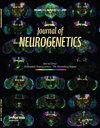Dopaminergic gene analysis indicates influence of inattention but not IQ in executive dysfunction of Indian ADHD probands
IF 2
4区 医学
Q3 GENETICS & HEREDITY
引用次数: 3
Abstract
Abstract Organizational inefficiency and inattention are speculated to be the reason for executive deficit (ED) of ADHD probands. Even with average IQ, probands often perform poorly due to higher inattention. Pharmacotherapy, cognitive behavioural therapy, and counselling provide only symptomatic relief. Several candidate genes showed involvement with ADHD; the most consistent are dopamine receptor 4 (DRD4) and solute carrier family 6 member 3 (SLC6A3). We analyzed association of rarely investigated DRD4 and SLC6A3 variants with ADHD core traits in Indo-Caucasoid probands. ED, inattention, organizational efficiency, and IQ were measured by Barkley Deficit in Executive Functioning-Child & Adolescent scale, DSM-IV-TR, Conners’ Parent Rating Scale-revised, and WISC respectively. Target sites were analyzed by PCR, RFLP, and/or Sanger sequencing of genomic DNA. DRD4 variants mostly affected inattention while SLC6A3 variants showed association with IQ. Few DRD4 and SLC6A3 variants showed dichotomous association with IQ and inattention. DRD4 Exon3 VNTR >4R showed negative impact on all traits excepting IQ. Inattention showed correlation with attention span, organizational efficiency, and ED, while IQ failed to do so. We infer that IQ and attention could be differentially regulated by dopaminergic gene variants affecting functional efficiency in ADHD and the two traits should be considered together for providing better rehabilitation.多巴胺能基因分析表明注意力不集中对印度ADHD先证者执行功能障碍有影响,而智商对其没有影响
摘要组织效率低下和注意力不集中被认为是多动症先证者执行缺陷(ED)的原因。即使智商一般,先证者往往由于注意力不集中而表现不佳。药物治疗、认知行为治疗和咨询只能缓解症状。几个候选基因显示与多动症有关;最一致的是多巴胺受体4(DRD4)和溶质载体家族6成员3(SLC6A3)。我们分析了很少研究的DRD4和SLC6A3变体与印度-高加索先证者多动症核心特征的相关性。ED、注意力不集中、组织效率和IQ分别采用儿童和青少年执行功能Barkley缺陷量表、DSM-IV-TR、Conners父母评定量表修订版和WISC进行测量。通过基因组DNA的PCR、RFLP和/或Sanger测序分析靶位点。DRD4变体主要影响注意力不集中,而SLC6A3变体与IQ相关。很少有DRD4和SLC6A3变异体与IQ和注意力不集中呈二分法相关。DRD4外显子3VNTR>4R对除IQ外的所有性状都有负面影响。注意力不足与注意力持续时间、组织效率和ED相关,而IQ则没有。我们推断,影响ADHD功能效率的多巴胺能基因变体可能会对IQ和注意力进行不同的调节,为了提供更好的康复,应该将这两个特征结合起来考虑。
本文章由计算机程序翻译,如有差异,请以英文原文为准。
求助全文
约1分钟内获得全文
求助全文
来源期刊

Journal of neurogenetics
医学-神经科学
CiteScore
4.40
自引率
0.00%
发文量
13
审稿时长
>12 weeks
期刊介绍:
The Journal is appropriate for papers on behavioral, biochemical, or cellular aspects of neural function, plasticity, aging or disease. In addition to analyses in the traditional genetic-model organisms, C. elegans, Drosophila, mouse and the zebrafish, the Journal encourages submission of neurogenetic investigations performed in organisms not easily amenable to experimental genetics. Such investigations might, for instance, describe behavioral differences deriving from genetic variation within a species, or report human disease studies that provide exceptional insights into biological mechanisms
 求助内容:
求助内容: 应助结果提醒方式:
应助结果提醒方式:


